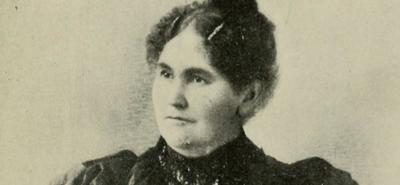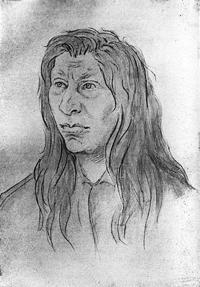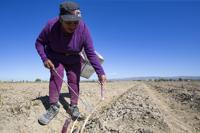Editor's note: This column was first published March 15, 2021.
For seven years, Yakima was home to the first woman doctor in the Pacific Northwest who graduated from a medical school.
Dr. Bethenia Owens-Adair was a pioneer in many ways, coming to the Pacific Northwest by wagon train, advocating for women’s suffrage and temperance, and pursuing a career in medicine starting in her late 30s.
Owens-Adair was born Feb. 8, 1840, in Van Buren County, Mo., the third of 11 children of Tom and Sarah Owens. Three years later, they traveled to Oregon in the first major wagon train, settling first at the Clatsop Plains and later in the Umpqua Valley at Roseburg.
She married Legrand Henderson Hill in 1854, when she was 14. Her husband was described as “a restless man with little inclination to work.” At age 19, with a 3-year-old son, Owens-Adair divorced him and had her maiden name legally restored.
Her schooling up to that point was scant — she was barely literate — but Owens-Adair threw herself into educating herself while supporting her son. She worked as a domestic, a teacher, nurse and a milliner in Roseburg.
In 1873, Owens-Adair went to medical school at the Eclectic Medical College of Philadelphia, practicing medicine in Boston on the side before her graduation in 1874, when she returned to Roseburg, where she opened a practice.
In Roseburg, she faced opposition from her male colleagues, who sought to humiliate her by inviting her to an autopsy of an indigent elderly man. She countered them by showing up, and when asked if she would perform the autopsy, she did so, a move that did not make her many friends.
Afterward, she decided to leave Roseburg and move to Portland, and later to Astoria where she practiced medicine. She earned a second medical degree from the University of Michigan in 1880, after some claimed that the school in Philadelphia was nothing more than a diploma mill.
She remarried in 1884 to Col. John Adair, hyphenating her last name. She also became involved in the women’s suffrage movement, speaking at the First Oregon Congress of Women in 1896, where she asked delegates, “Is there any difference between woman’s work and man’s work? Is there anything under the sun that muscle or mind can do that the new woman cannot accomplish?”
She also campaigned against the brothels of Portland and supported the temperance movement, likely a result of her experience with the damage alcoholism caused her family. She also advocated for women’s health, making what some considered the scandalous suggestion that women forego restricting corsets and go out and exercise.
At this time, her health took a turn for the worse, with rheumatism starting to affect her. Her husband suggested that they might want to try the drier climate of North Yakima, where Owens-Adair’s son, George Hill, was practicing medicine.
They made the move, and Owens-Adair said the high-desert climate had “worked like magic,” leaving her relieved of rheumatism and feeling 20 years younger.
She found Yakima was relatively more open-minded about a woman physician. She was elected president of the Yakima Medical Association, reviving the organization and getting the doctors to pay their dues.
On Oct. 10, 1905, Owens-Adair retired, closed her office in Yakima and returned to Oregon to write her autobiography.
Owens-Adair was a believer in eugenics, the belief that humanity could be “improved” through encouraging people with the “right” genetic backgrounds to have children while those deemed to be “unfit” should not be allowed to reproduce.
In Owens-Adair’s philosophy, the unfit included criminals, mentally ill people and those with developmental disabilities, and she recommended they be sterilized. Her attempt at getting a eugenics law passed in Oregon made it through the Legislature in 1909 but was vetoed by the governor. A second bill passed in 1923, and was repealed 60 years later, after 2,500 people had been forcefully sterilized.
She died Sept. 11, 1926, in Astoria, and is buried in Ocean View Cemetery in Warrenton. Her tombstone notes her support for the eugenics law, as well as quote from her that summed up her life: “Only the enterprising and the brave are actuated to become pioneers.”







(0) comments
Comments are now closed on this article.
Comments can only be made on article within the first 3 days of publication.